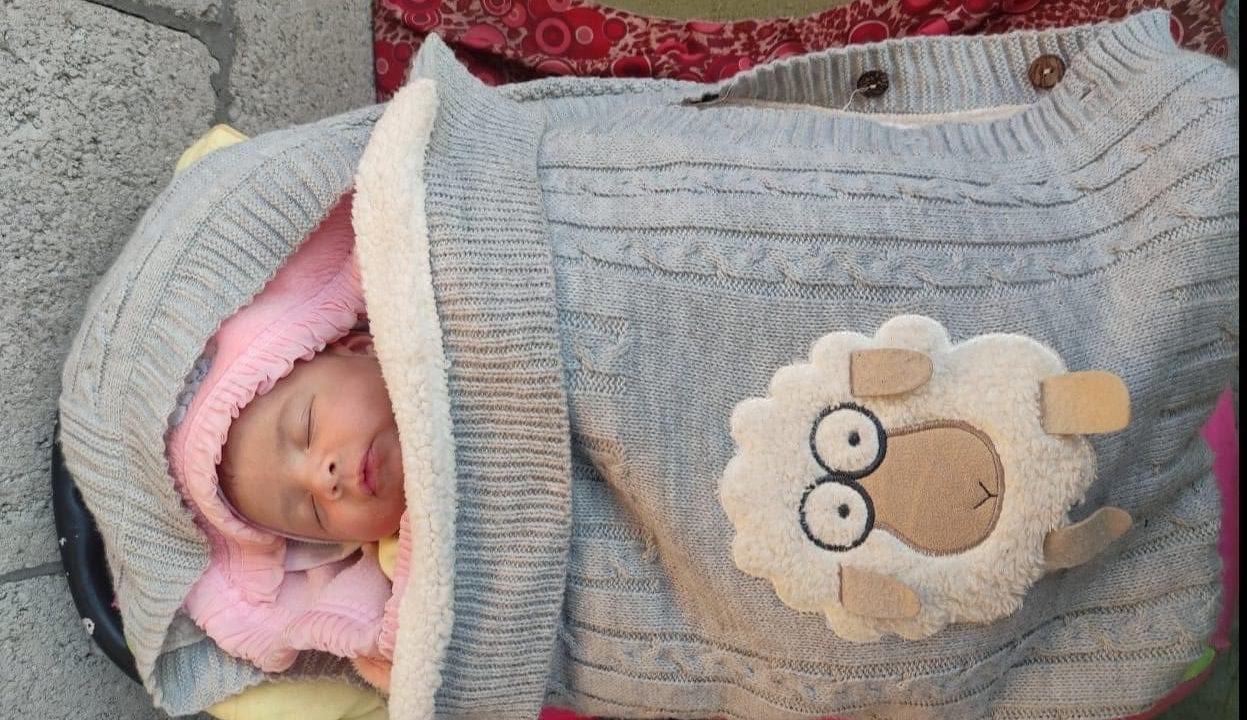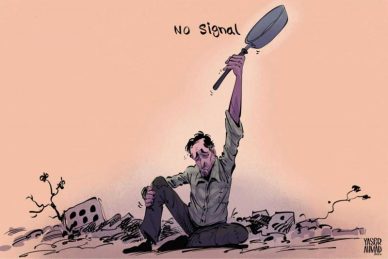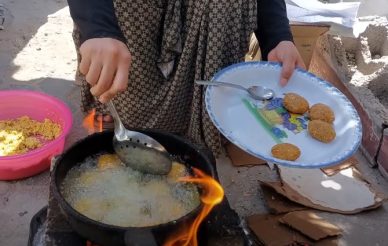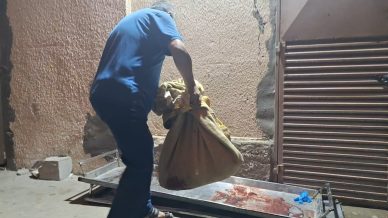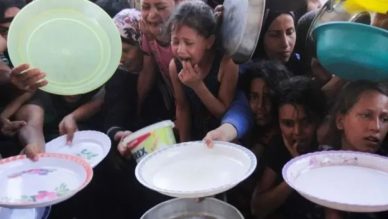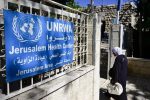GAZA, (PIC)
Fifty thousand children have been born in Gaza during the ongoing Israeli aggression over the past ten months, according to international organizations. These children have made their way into life from the womb of genocide, resembling a miracle, only to face conditions that are nothing short of hell. The resilient women of Gaza see Allah’s mercy and miracles, which they have witnessed firsthand, as a blessing despite all the hardships and catastrophic circumstances.
The birth of my little miracle
“Because I saw Allah’s mercy with my own eyes and held it in my hands. Allah’s mercy can be seen with the naked eye, doctor, thanks to Allah.” With these words, filled with confidence and reassurance, Alaa Al-Namr responded to the doctor who received her and her newborn, who was born on their terrifying journey to the hospital. The doctor was curious about the secret behind her smile despite the horrors she had faced.
Al-Namr recounts the painful and harsh details of what women in Gaza endure during pregnancy and childbirth. She says, “Six months ago, specifically on January 14th of the same year, the year of war, fear, hunger, displacement, homelessness, killing, loss, and destruction, I was due to give birth to my new baby far from my destroyed home and all forms of life, including safety. I mistakenly believed I would give birth after the war ended!”
She adds, “I reached the month of labor after being displaced at least eleven times. I jumped out of windows once to escape quadcopter bullets, climbed a destroyed building to escape enemy tanks that had surrounded us, and trekked four hours eastward after being surprised by those cursed vehicles.”
The father cuts the umbilical cord
She continues her tale, filled with pain and hope, “Labor began at exactly ten o’clock at night in the street, and my daughter was born exactly five minutes later. Her birth was a miracle when my newborn ‘Nema’ let out her first cry in her father’s hands, who successfully cut the umbilical cord and released her to start her life journey without a designated delivery room or even a bed made for her, with clothes provided by one of the martyrs from the remains of a destroyed clothing exhibition!”
She describes her painful journey, “It wasn’t over yet. Despite the nighttime danger, my husband arranged for a car to take me to Al-Sahaba Hospital. I got in, and he and my brother ran ahead to the hospital to receive me there.”
“He prepared a suitable place for my arrival and my baby, but I was delayed. Yes, the car transporting me and my baby, wrapped in a cloth, ran out of gas after just a few meters,” she recalled.
Walking on foot
Al-Namr says, “I decided to continue on foot as quickly as possible, but I didn’t know the way, and there were no roads to follow. All paths were dark, and all I saw were mounds of destruction.”
Her story continues, “My cousin led the way with a small flashlight, shouting right and then left as he navigated the ruins. Meanwhile, my mother was calling out for help, saying: We need a car, there’s a mother and baby here. I reassured her, saying, I can walk, thank to Allah, don’t worry, while remnants of the umbilical cord swayed with me, and birth blood flowed.”
She recounts more painful details, “The rain intensified, and Alah’s mercy showered upon us. My cousin hurried with my baby hidden inside his winter coat, shooing away hungry night dogs to clear the way for us.”
Finally, he shouted, “We’re almost there.” A kind person in a minibus “followed us to take us to the hospital. I boarded, thanking him profusely until I stepped out in front of the hospital, with my baby arriving seconds before me,” she said.
The story behind the smile
Continuing her story, Al-Namr says, “At the hospital door, a doctor, who had been told I had given birth on the way, asked us (my crying sister and me), Who is the mother? I answered calmly and with a big, deep smile, I am. The doctor then asked my sister, why are you crying? I answered again, she’s worried about me, and I kept telling her I’m fine. The doctor smiled and continued with the birth process, removing the remnants from inside me.”
The doctor kept the story until the morning. “When I was leaving, she asked, I want to know the secret of your smile after coming from such a terrifying journey, not knowing your baby’s fate. I smiled again and said, because I saw Allah’s mercy with my own eyes and held it in my hands. Allah’s mercy can be seen with the naked eye, doctor.”
Al-Namr continues, “The most amazing gift I received was from my cousin, who kept praying for me and fearing for my life after a nearby bombing. She had hidden some oranges she had picked from a nearby tree, watching it closely. She intended to make juice for over twenty people but chose to make it for me instead. It was the first and last time I ever had fresh juice!”
She concludes her gripping story, “I gave birth to my daughter during a time of nothingness, with children starving. A quarter of a small loaf was our daily share. Despite this, my husband had hidden a small tin of halva in the birth bag, a rarity in the markets. I checked it every time to ensure it was still there. On that day, I took a deep breath and began with the first spoonful, astonished by my hidden blessing.”
50,000 children born in Gaza during the aggression
Save the Children reported that 50,000 children have been born in Gaza during the ongoing war, in conditions described as degrading, difficult, and unsanitary, without basic health services.
The organization stated, “Pregnant women in Gaza face numerous risks due to the deteriorating health sector and repeated displacement” amidst the ongoing Israeli military operations.
The organization documented that some pregnant women resorted to unsafe home births, fearing labor would start during displacement.
“Many women are afraid to go to hospitals due to frequent bombings, and some lost their lives due to a lack of health services and difficulty accessing doctors,” the organization added.

